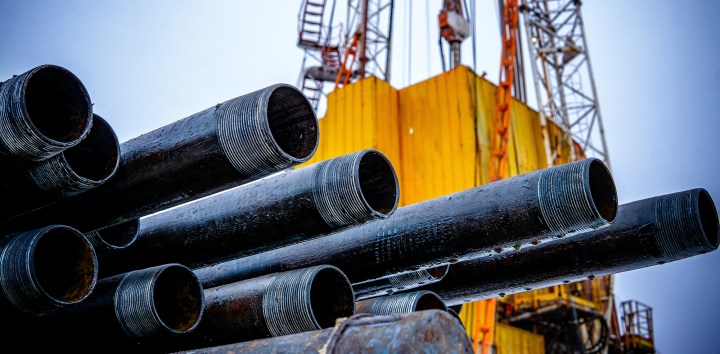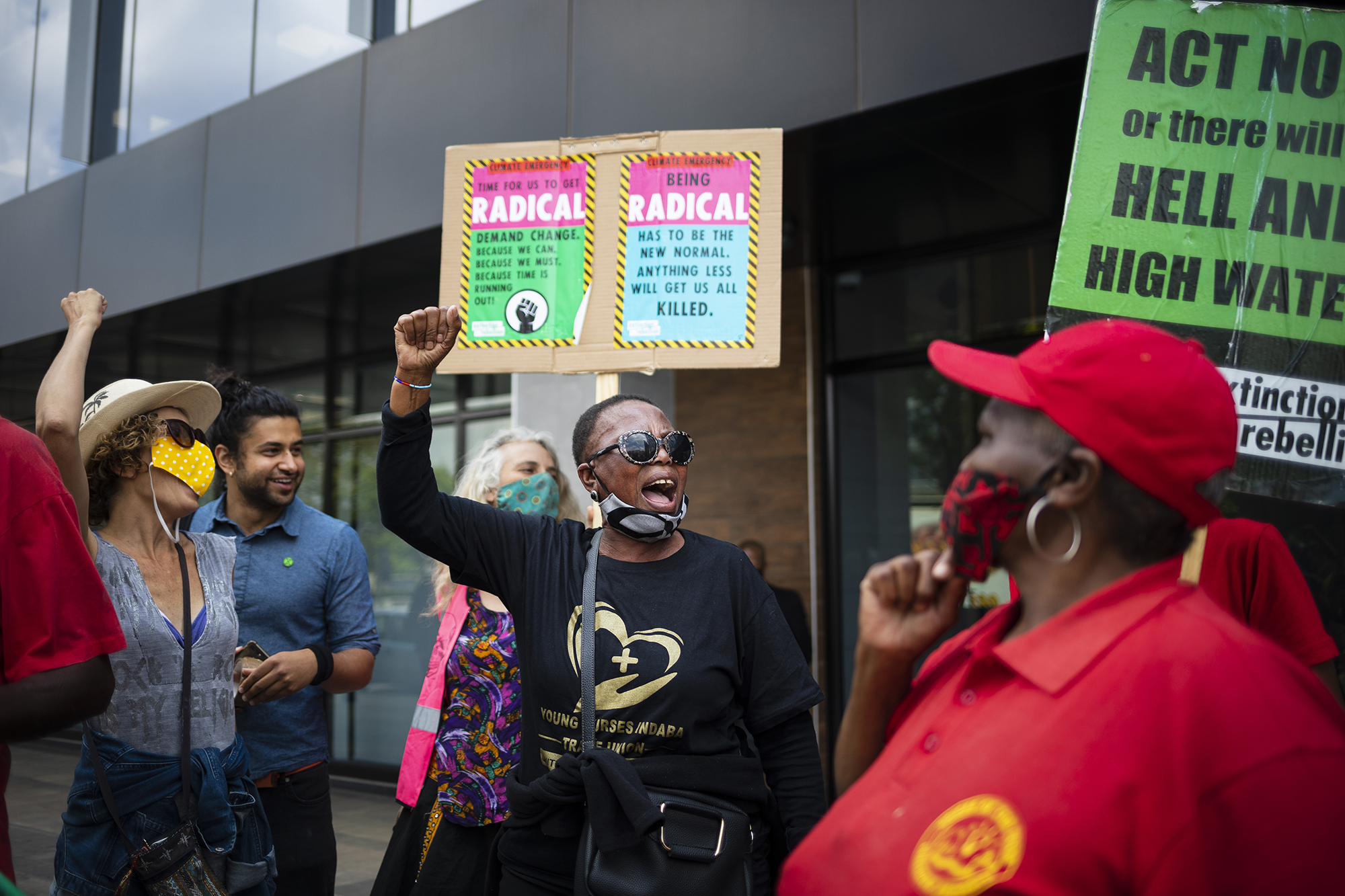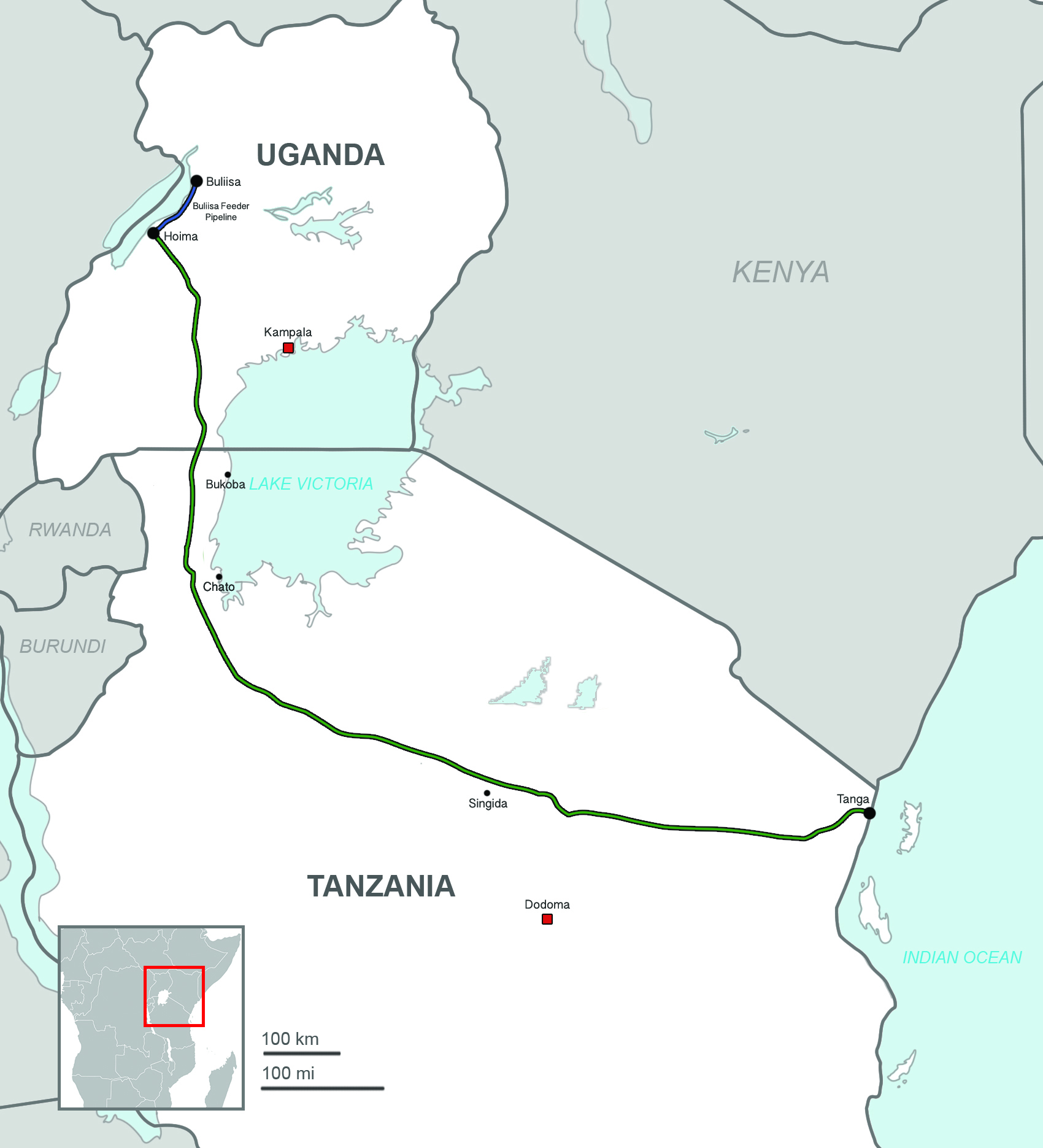BUSINESS MAVERICK
NGOs ask banks not to finance East African oil pipeline

‘As well as severe impacts on local communities and their rights, the pipeline threatens one of the world’s most ecologically diverse, wildlife-rich regions.’
More than 260 NGOs and community organisations have urged the CEOs of 25 banks not to provide finance for the East African Crude Oil Pipeline (EACOP). In an age when ESGs — environmental, social and governance concerns — have growing prominence in boardrooms, their message will not fall on deaf ears.
The proposed 1,445km pipeline, which would be the longest heated crude pipeline in the world, has been years in the making. It would transport crude from landlocked Uganda, where oil was discovered in 2006, to the Tanzanian port of Tanga. Uganda’s government said last week it expected construction, with French oil giant Total and Chinese state-run oil company CNOOC, to begin soon.

Environmental activists from Extinction Rebellion protest outside the Standard Bank head office in Rosebank, Johannesburg, in October 2020 against Standard Bank’s connection with the East African Crude Oil Pipeline. (Photo: EPA-EFE / Kim Ludbrook)
Uganda’s oil reserves are estimated at six billion barrels and lie in the Albertine rift basin in the west of the country, not far from its border with Democratic Republic of Congo. The Ugandan government has never been in a rush to get it out of the ground. Commercial production has been delayed by the government’s insistence that a refinery and pipeline be erected first — a policy clearly aimed at using a natural resource to spur industrialisation.
There have also been disagreements over field development and other issues. This correspondent once summed it up this way: Uganda is the oil province of the future and always will be.
Uganda may now rue the delays. For one thing, the collapse of oil markets in 2020 in the face of the Covid-19 pandemic and the Great Lockdown have halted many hydrocarbon projects in their tracks, and seen tens of billions of dollars in oil and gas assets written off. Oil prices have rebounded strongly in 2021 to back over $60 per barrel, but it remains to be seen if this rally can be sustained. The shift to cleaner, greener sources of energy has been accelerated by the pandemic.
And then there is the rise of ESGs, which has made it harder to find financing for new coal mines or power plants. Environmental concerns are also often twinned with governance concerns, and this not just on the corporate front. Uganda’s Yoweri Museveni, in power since 1986, recently won another term in office in an election that was widely seen as tainted. Tanzania’s John Magufuli has been in the spotlight for his irresponsible response to the pandemic and autocratic tendencies. One could make a strong case to investors that these guys should not be propped up.
The letter to the bankers focuses on the pipeline’s social and environmental threats. Tanzania is one of the last great refuges of African wildlife and so the project is high on the radar screen of conservationists. Its signatories include Friends of the Earth International, the Catholic Agency for Overseas Development, Reclaim Finance, Sierra Club, Global Witness, the IUCN National Committee of the Netherlands, BankTrack, Africa Institute for Energy Governance (AFIEGO) and Inclusive Development International (IDI).

The East African Crude Oil Pipeline intends to transport crude oil from Uganda’s oil fields to the Port of Tanga, Tanzania. (Map: Wikipedia)
“The letter to the three banks acting as financial advisors for the project — Standard Bank, Sumitomo Mitsui Banking Corporation, and Industrial and Commercial Bank of China — and 22 banks that have recently provided finance to Total and CNOOC, comes as speculation mounts that a Final Investment Decision (FID), which would commit Total to mobilize capital for the project, is imminent,” Inclusive Development International, an NGO, said in a statement on its website.
Climate activists have already targeted Standard Bank, which has a large African presence, over the hydrocarbon ties of its board.
“The risks of this project to people and nature in the affected countries, and to the world’s climate have been extensively documented… These include: significant human rights impacts to local people through physical displacement and threats to incomes and livelihoods; unacceptable risks to water, biodiversity and natural habitats; as well as unlocking a new source of carbon emissions that will either prove financially unviable or produce unacceptable climate harm,” the letter says.
“As well as severe impacts on local communities and their rights, the pipeline threatens one of the world’s most ecologically diverse, wildlife-rich regions. It threatens Uganda’s oldest and largest nature reserve, the Murchison Falls National Park, which would be opened up to large-scale oil extraction at a time when the world is acting to urgently reduce its reliance on fossil fuels… In Tanzania, the pipeline will run through key biodiversity areas including the Biharamulo Game Reserve and Wembere Steppe Key Biodiversity Area.”
It calls on Standard Bank and others to cease their financial advisory role to the project and “on all banks and all financial institutions with a business relationship to Total and CNOOC to… [p]ublicly commit not to participate in financing the EACOP project or associated oil projects.”
Uganda may argue that a poor, developing country should be allowed to benefit from its natural wealth and create an industrial base that can help grow its economy and create jobs. But the world is fast-changing and fossil fuels are falling out of favour. That is the economic reality of commodities.
It remains to be seen if the project will go ahead — it may simply not justify the costs in the current economic environment. And those costs also include scrutiny from opponents who are taking the fight to where it counts: the banks. The EACOP may yet prove to be a pipe dream. BM/OBP



















 Become an Insider
Become an Insider
Comments - Please login in order to comment.